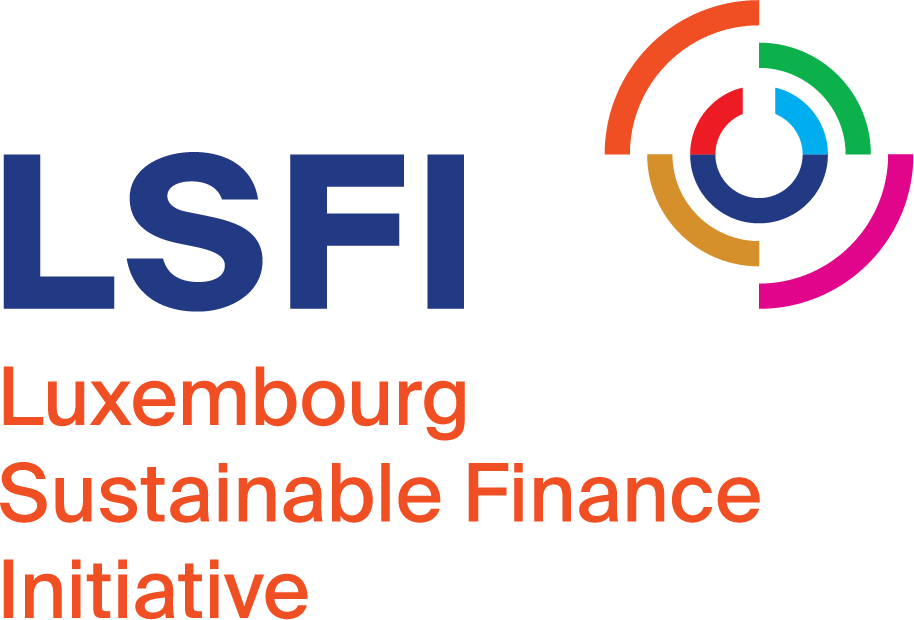In March 2023, the Luxembourg Women in Finance Charter was launched, soaring towards a mission of fostering gender balance and diversity in the financial sector. Embraced by its Founders and dedicated signatory companies, this commitment serves as a foundational framework to advance women’s involvement across all tiers of financial service organizations and representative bodies in Luxembourg.
The WiF Charter has been founded by The Luxembourg Bankers’ Association (ABBL), Association of the Luxembourg Fund Industry (ALFI), Association of Insurance and Reinsurance Companies (ACA), the Luxembourg Capital Markets Association (LuxCMA), Luxembourg Finance Labelling Agency (LuxFLAG) and the Luxembourg Stock Exchange (LuxSE), under the patronage of the Luxembourg Ministry of Finance.
For our LSFI January newsletter edition, we’ve interviewed the founders of WiF. Dive deep with us as they unravel the essence of why the Women in Finance Charter is a key initiative and discover their insights on the importance of this commitment, where the industry currently stands, and the potential it holds for both signatory companies and the financial industry at large.
Why the need for a Women in Finance Charter in Luxembourg?
H.E. Gilles Roth, Luxembourg Minister of Finance: The Luxembourg financial centre is the key engine of our economy, accounting for a quarter of GDP and employing more than 65,000 people. For every job created in the financial sector, 1.1 jobs are created in the rest of the economy. In order to continue to develop our financial centre, we will need the right skillsets and talent. Promoting women in the financial sector and ensuring that more women take on leadership roles is a low hanging fruit in this context.

Gilles Roth, Minister of Finance
Luxembourg can be proud that it has the lowest gender pay gap in Europe. In fact, it became positive in 2021, with women’s hourly wage exceeding that of men for the first time. However, this only pays a partial picture as it looks at hourly wages and average salaries and doesn’t reflect for instance the fact that women work much more part-time than men. In the financial sector, the gender pay gap remains among the highest at 23%.
I am convinced that empowering women in the financial sector is indispensable for a modern, innovative financial centre like Luxembourg that has become a leader in sustainable finance. And the Women in Finance Charter, which is an industry-led initiative – and I here want to thank its founding partners — supported by the Ministry of Finance, is part of these broader efforts.
The new government has made the promotion of gender finance a priority. This has a dual objective of promoting finance for women (i.e. supporting initiatives that help finance SDG 5 and channel investments into women-led enterprises), and promoting women in finance (i.e. empowering women within the financial sector).
I want to build on the work of my predecessor, Yuriko Backes, and am committed to launching several new initiatives in this area in the coming months. So watch this space!
Jerry Grbic, CEO of The Luxembourg Bankers‘ Association (ABBL): Numerous studies have shown that there is a correlation between a better representation of women in positions of responsibility in a company and the performance or added value of the latter. Similarly, a large number of researchers highlight the link between the diversity of a company’s employees and their level of productivity, their ability to innovate and to adapt in times of crisis. Finally, there is also evidence that a company that fosters a culture of diversity is more likely to retain its best talents and create a climate of trust within its workforce.

Jerry Grbic, CEO of ABBL
European women have a high level of qualifications. For example, 60% of university graduates are women. However, they are still poorly represented in hierarchical positions at the board level or in management positions in companies. According to an ABBL study conducted in 2022, while women represent 52% of the workforce under the sectoral collective agreement for banks (respectively 33% outside the collective agreement), they are only represented at the executive committee level by 21%. This figure drops to 19% at the board level.
Initiatives promoting diversity such as the Luxembourg Women in Finance Charter are thus not only a matter of social responsibility. They also have a fundamental role in the performance and sustainability of companies in a changing world.
The ABBL supports the Luxembourg banking sector in its evolution to become a major contributor to a sustainable and responsible economy. Encouraging innovation and advancing practices that align with this objective are central to our ambitions and commitments. Promoting diversity, equity and inclusion within our sector is fully part of our approach.
Octavie Dexant, Vice President of Association of Insurance and Reinsurance Companies (ACA) & CEO of AXA Luxembourg:

Octavie Dexant, Vice President ACA
Figures and pictures speak for themselves, we were definitely not there in terms of diversity. The WIF Charter was thought as a catalyst to accelerate the awareness, the transparency and the commitment of financial companies based on the collective movement and emulation it would create.
Fostering diversity within financial institutions is key. Beyond the search for equality in career opportunities, bringing more diversity in financial institutions is the only way to better reflect society and thus customer’s needs understanding and answer. This will deliver both fairness and business.
Corinne Lamesch, Member of the Board of Association of the Luxembourg Fund Industry (ALFI) & Luxembourg Country Head of Fidelity:

Corinne Lamesch, Member of the Board of ALFI
When I became chair of ALFI in 2019, Diversity & Inclusion was among my priorities. At that time, ALFI assessed the Luxembourg environment in this regard and our major findings were the following:
- Luxembourg is diverse in many aspects. It has a very international and highly qualified workforce.
- However, we are lacking senior female leaders in financial services and the gender pay gap in this sector is higher compared to other sectors!
- We are also lacking official up-to-date data on female representation at the board or senior management level.
- Finally, while many firms have developed diversity initiatives at an individual level, we found that we are lacking a coordinated industry approach in Luxembourg.
It was hence clear that we needed to do more as an industry, in particular to increase female representation at all levels within our financial sector.
Julie Becker, Chair of LuxCMA & Chief Executive Office of the Luxembourg Stock Exchange:

Julie Becker, Chair of LuxCMA & CEO of LuxSE
Why? In Europe, only 18% of executive directors are female(1) and 27% of financial institutions still lack a mandatory diversity policy (1). Beyond the female representation, in the finance and insurance industry, Eurostat(2) reports a gender pay gap in 2021 between 7% and 37.5% across EU Member States where data is available. For Luxembourg, the agency reports a 23% gender pay gap in favour of men. Such data point demonstrates the need for a Women in Finance Charter in Luxembourg and beyond.
The Luxembourg financial industry is renowned for its expertise, stability, and international appeal. However, to remain attractive to both talents and clients, it is essential that the industry also becomes synonymous with inclusion, diversity and equal opportunities.
Isabelle Delas, CEO of LuxFLAG:

Isabelle Delas, CEO of LuxFLAG
Although Luxembourg has the smallest gender pay gap in the whole European Union according to the STATEC, there are still significant differences in many individual sectors such as the real estate sector (23.1%) which is closely followed by the finance and insurance sector (23%). These statistics clearly show that the finance sector is well behind in terms of gender representation and gender pay gap. Therefore, the Women in Finance Charter (‘Charter’) is definitely needed in order to bring Luxembourg’s financial sector towards a more balanced stance. It is important to unite forces to make this Charter successfully achieve its objective of creating more inclusion in the Luxembourgish financial sector. It is a step in the right direction and will motivate and push companies into achieving higher percentages of woman representation at all levels of the firm.
If you would like to learn more the Luxembourg Women in Finance Charter, what its mission and pillar are, who are its signatories and how to become one, visit the newly launched „Women in Finance Charter“ website.
Access the Luxembourg Women in Finance Charter Website
Sources:
(1) https://www.eba.europa.eu/publications-and-media/press-releases/womens-representation-boards-has-gradually-improved
(2) https://ec.europa.eu/eurostat/statistics-explained/index.php?title=Gender_pay_gap_statistics#Highest_gender_pay_gap_in_financial_and_insurance_activities





